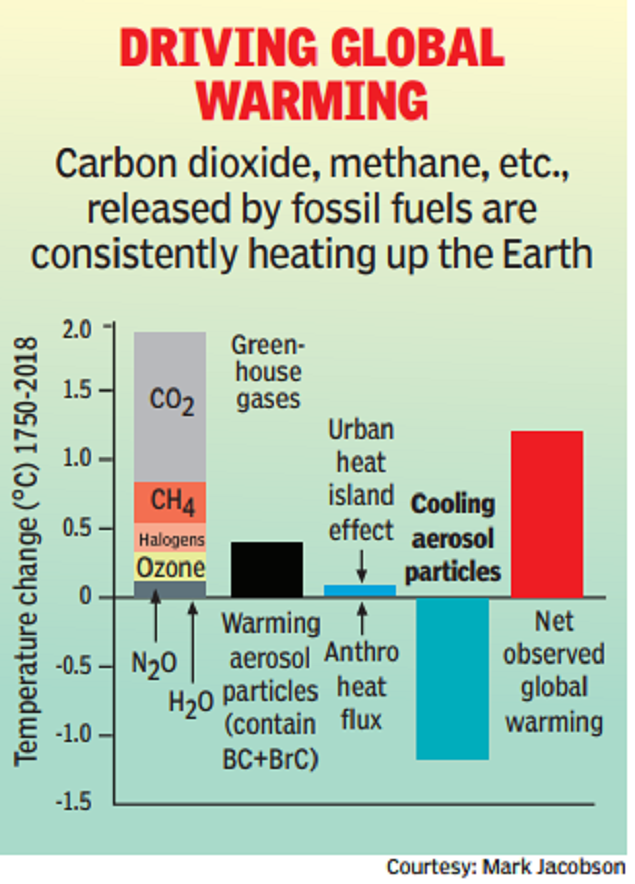Why in news?
A new study highlights that the global fossil fuel production should decline by 3% per year until 2050 to keep global warming to below 1.5°C[Paris Agreement goal].
What are fossil fuels?
Fossil fuels produce large quantities of carbon dioxide when burned. Carbon emissions trap heat in the atmosphere, leading to global warming and eventually to climate change.
What is the Paris climate goal?
How is the current level of fossil fuel extraction?
To achieve the targets, almost 60% of oil and gas reserves and 90% of coal must remain unextractedby 2050.
Greenpeace report published in early 2020
IPCC warns that fossil fuel emissions must be halved within 11 years (from 2021) if global warming is to be limited to 1.5°C above pre-industrial levels.

Why are unextracted reserves important?
What does this call for?
Source: Indian Express, BBC
Other harmful effects of fossil fuels
Land degradation
Water pollution
Emission
Other effects